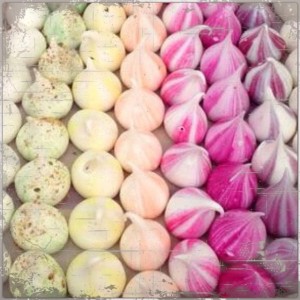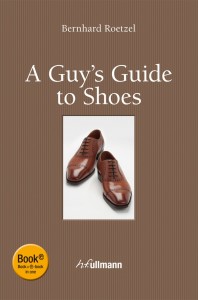News from JMS
Welcome to our blog, where we plan to feature news, views and translation clues. Things like: did you know that English cats say ‘meow’, German moggies ‘miau’, French felines ‘miaou’, and Spanish Siamese ‘miau’. Pause for thought…
Cold Turkey
How’s that for a non sequitur following Jane’s post about the latest cakes on the block! Translated into German it is ‘Entzugssyndrom’, but many other languages simply haven’t bothered and have stuck to ‘cold turkey’, albeit uttered in a charming foreign accent. The origin of the phrase is uncertain, but it probably comes from the USA. Brown Turkey on the other hand is not a variation on giving something up painfully and quickly, but the Ficus carica, a fig tree that you can actually grow successfully in the UK. The fruit is ripening now, but you need to get to it before the wasps do.
Crumbs re cake-pops, cronuts and cupcakes, there’s a new pud in town
We have translated and edited a sweetshop of recipe books, including moreish ones on melt-in-the-mouth macarons and Moroccan marvels, but some are hailing the meringue the new monarch of the dessert clan. The cronut’s reign may be cut short but the meringue is here to stay, king-sized and kiss-sized. Selfridges are selling kisses in London for under a pound – I shall report.
More Chinese mirrors and whispers
Xi Jinping’s inspection tour of Guangdong province in the south last year was full of symbolic significance. He was replicating the famous tour of Guangdong and Shenzhen made twenty years ago by the then reformist leader of China Deng Xiaoping, a trip that helped to reinvigorate the country’s economic reform agenda . Xi visited villages, companies, the armed forces and research institutes. Standing on Lotus Hill, the site of a statue honoring Deng Xiaoping, he promised to push towards reform and opening up. In another interesting scenario, Xi went on a much reported, mysterious taxi ride recently, ostensibly to see what the traffic in Beijing was like, mirroring the habit of Qing Dynasty emperors to travel incognito among the people. The taxi ride itself turned out to be all smoke and mirrors itself, as it was subsequently denied.
A book with genuine sole
We translated this great new book-and-ebook for Ullman Publishing from German to English earlier this year and it is about to hit the shoe shelves. Comprehensive and informative, it has photographs of more than 200 shoe models and features fascinating info on the history of shoes and contemporary trends. A must-buy for shoe-lovers. We really enjoyed working on it!
Click here for more info:
http://www.ullmann-publishing.com/en/books/details/1248-a-guys-guide-to-shoes-book-e-book/
A shoe-in for success!
Four dishes and one soup: a recipe for austerity
Business banquets of twenty or more courses used to be common in China but President Xi Jinping has introduced new austerity measures, now known as ‘four dishes and one soup’, for officials and the military, with many expense-account restaurants suffering downturns in revenue. The term goes back to the Ming Dynasty when the first emperor of that era, Zhu Yuanzhang, initiated the same kind of restraint. On a trip to Fuping county in December last year, Xi Jinping enjoyed a relatively spartan meal of braised chicken, local stew, stir-fried pork, garlic shoots and melon soup. Not a drop of baijiu in sight (China’s famous, fierce and flammable tipple, up to 120 per cent proof and soon to marketed in milder form to the West). Four dishes, one soup has now become shorthand for the government’s policy of curbing excesses in officialdom. There is a growing mood in China against corruption among officials and corporations. So the business of banquets may not be so big in future…and we will see if this and baijiu go down well in the east and west.
Richard III in Mandarin
One could be forgiven for thinking the link between Mandarin and Richard III is a stretch too far, but I was watching excerpts this weekend from the performance of the play in Mandarin (with English captions) by the National Theatre of China at the Globe Theatre in London last year. At the same time my colleague was on a history trip to Leicester, where the remains of this controversial king were uncovered. And last month an unusual coffin-in-a-coffin was unearthed at the same site. As she reports: There can’t be many kings of England with their very own appreciation society, but Richard III enjoys just that. Just attended a fascinating weekend in Leicester visiting sites associated with Richard, including the now famous car park, where his remains were found back in February beneath a piece of tarmac handily marked R. How spooky was that! Now it appears Alfred the Great might have been found, but in more conventional surroundings and without the added frisson of mysterious municipal markers hinting at the spot.
As Richard III said about transport issues at the Globe:
要一匹马! 要一匹马!愿以王位许之!
‘A horse! A horse! My kingdom for a horse!’Unlucky four business
Number 4 is one to avoid, the pronunciation of which is the same as death. It is considered unlucky to have 4 in your address, car reg, phone number and bus (should you own one!). Whereas Westerners sometimes avoid having a 13th floor, you may well spot that the lift doesn’t stop at the fourth in China (and in Japan, Korea and Tawian). Triskaidekaphobia meets tetraphobia, West meets East. Numbers 14 and 24 are also associated with death because they are sound like the words for ‘must die’ and ‘easy to die’, so next time you are in a high-rise building in Asia, check out if the lift goes to those floors.
The business of numbers in Chinese
Numbers have particular significance in China. Lucky numbers tend to be even rather than odd, and the number 8 is the luckiest of all, particularly in multiples. It is in huge demand for house numbers, bank accounts and car registration plates. When pronounced, it sounds like the word for prosperity or wealth, and large sums of money change hands for phone numbers with 8, 88 or 888. The opening ceremony of the 2008 Beijing Olympics began at eight minutes past eight on the eighth day of the eighth month (8.08/8/8/2008). The pronunciation of number 168 sounds like ‘forever prosperous’, making it another good combination. Poor 4, however, sounds like the word for death or failure, with the result that it is actively avoided. Number 3 sounds like the word for growth, and 6, 7 and 9 are lucky, too, as is 2.
The concept of ‘face’ in Chinese culture
It is extremely difficult to explain the concept of ‘face’ (mianzi), and its consequences and implications for foreigners, in Chinese culture but it is equally vital for Westerners to be aware of it if they hope to be successful in forming relationships with Chinese clients, colleagues or friends. Take it too lightly at your peril; your relationships, commercial and personal, will suffer. Making a mistake in public is a deeply humiliating experience for the Chinese and they will do whatever they can to avoid looking bad in front of others. Saving face is also about one’s image and status within society. It is much more complex than Westerners might think and must be given due respect. A business deal could easily be broken if your business partner feels you have caused him or her a loss of face. In a business context face can work both ways and be mutual. Showing respect, giving a small gift and praising achievements in public are all ways in which to give face. In order to avoid losing it, avoid showing anger, criticising people in public and addressing conflict directly. More facetime soon…

